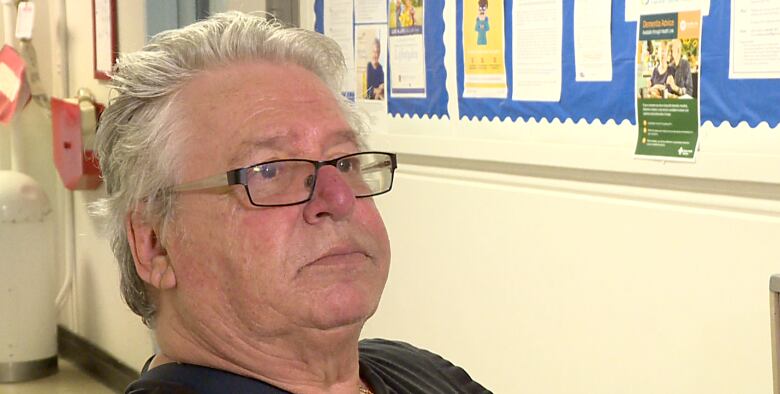Stigma, access still barriers to medically assisted death in Alberta 2 years after law passed, advocates say
'We've made progress, but we have a long way to go'

Terry Wiens is a survivor of childhood polio. He says he has always sought control ofhis healthcare throughout his life, and hopes to have some degree of control over his death, too.
"Having grown up in a hospital and having worked in a hospital, I don't want to end my life in a hospital," he said."I want to be able to make that decision myself, so medically assisted death has been in the back of my mind."
Wiens was one of dozens of people who attended a forum in Calgary Saturday highlighting the challenges and successes for assisted dying in Alberta. It was hosted by non-profit organization Dying with Dignity Canada.

In 2015, the Supreme Court ruled unanimously in favour of medically assisted deaths. The government passed a bill bringing medical assistance in dying into law two years ago this month.
As of April 30,a total of 364 Albertanshave died with medical assistance, according to Alberta Health Services. That includes128 people in the Calgary zone and 143 in Edmonton.
Another 113 people applied, but did not meet the federal criteria.
Law 'a bit vague'
HeatherShantz, a clinical nurse who specializes in palliative home care in Calgary, said certain components of the law could be clarified andcommunication with patients could be improved.
"The law is a bit vague. It says death must be in the foreseeable future and it doesn't define what foreseeable means," she said. "There's still a lot of misunderstanding about palliative care, apprehension around palliative care."
Shantzsaid she wants patients to know that they don't necessarily have to choose between palliative care and assisted death.
"We can look after them on their journey," she said.
Shanaaz Gokool, the CEO of Dying with Dignity Canada, saidthe stigma around assisted dying is one of thebiggest problems patients encounter. She also said differences in access to health-care services in urban and ruralcentres is problematic.
"We've made progress, but we have a long way to go," Gokoolsaid.
"There are people and families and doctors and nurses and pharmacists who don't even know this is allowed, so there is a real issue with education for a lot of different communities. And then putting in the systematic pieces to ensure that people, the most vulnerable, will have access to the help that they need."
People can find information on medical assistance in dying and the application process on the Alberta Health Services website.
- MORE ALBERTA NEWS |LGBT flag flies proud in Alberta town after being vandalized last year
- MORE ALBERTA NEWS |Experts challenge science behind Alberta's wild horse culls
With files from Nelly Alberola, Terri Trembath












_(720p).jpg)


 OFFICIAL HD MUSIC VIDEO.jpg)
.jpg)



























































































